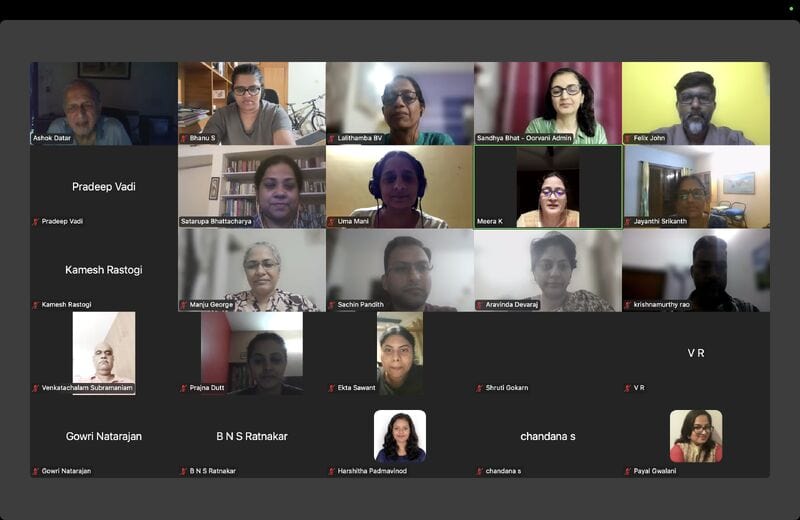On Friday, July 18, 2025, Oorvani Foundation hosted the first session of ‘Oorvani Change Network – Learning from the Doers’, a series that spotlights changemakers actively shaping their cities. The theme of the first session was urban mobility, and we were joined by three individuals whose work offers practical and replicable strategies for making our cities more accessible and people-friendly.
Ashok Datar from Mumbai Mobility Forum brought a vital but often neglected lens to the conversation: the economics of urban transport. He emphasized the need to examine how space is consumed, how taxation works, and how both subsidies and penalties can influence mobility choices.
A key takeaway from Ashok’s talk was the idea that revenue from parking, if directed thoughtfully, can fund public transport improvements, reducing our reliance on government subsidies. His core message: “Good economics is not anti-environment. We must value urban space as a precious commons and adopt policies that are both fair and forward-thinking.”
Felix John, Bicycle Mayor of Chennai shared his personal transformation — from a fitness cyclist in 2016 to Chennai’s Bicycle Mayor and a vocal advocate for non-motorised transport (NMT).
Felix’s journey underscores the power of community and a strategic approach. He started mobilizing a community to promote a fit lifestyle and as pandemic hit, the cycling community extended their services as relief riders during the second wave, which helped build trust with both citizens and government. The community put to use their knowldege of the city by sharing open data and ideas with city planners and he advocates a child-first city planning with a belief that “a city that’s safe for a 10-year-old to walk or cycle is a city that’s safe for everyone”. He highlighted his approach as a catalyst and not an activist, to work alongside the system rather than fighting from the outside.
Lalithamba BV from HSR Layout, Bengaluru illustrated how sustained community action can transform neighbourhood mobility. In HSR Layout, the Community Task Force began with small steps — revamping footpaths and painting walls — and steadily scaled up to conducting walkability audits and also fostered a culture of cycling. They community that was now built worked towards realizing their need for feeder bus service by conducting surveys, by proposals for extending a bus stop and with help from DULT and BMTC and their unrelenting perseverance. They were also successful in their requests for introduction of an airport bus.
Lalithamba’s experience highlighted how a multi-pronged, community-led approach can create lasting, scalable impact.
Learning from these three doers in the mobility space provided the participants a unique learning experience. During the session, the audience asked for contacts of fellow participants , keen to carry on conversations offline and learn more about the initiatives discussed.
The Oorvani Foundation aims to continue these sessions periodically, connecting with more communities on various topics that impact our lives in cities. The goal is to foster a collaborative learning environment where successful initiatives can be replicated across different cities, building a network of informed and engaged citizens dedicated to creating better urban spaces.

